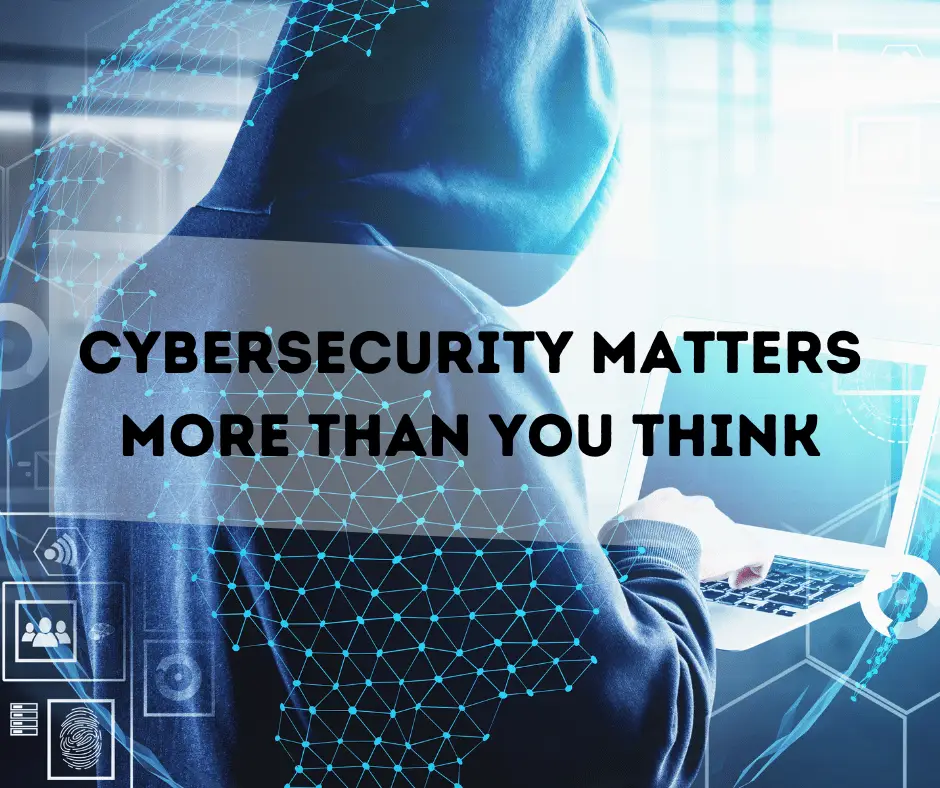You ever click on a link you probably shouldn’t have, then spend the next hour sweating about some malware taking over your life? Yeah, me too. And we keep hearing about huge company data breaches which make we wonder – are the companies that hold our personal information doing enough to protect our information from getting snatched by hackers? Are we at risk of being compromised?
Disclaimer: I’m not an expert, but having worked in the telecom industry in the past, here’s my perspective on cybersecurity.
What is Cybersecurity?
Simply put, It is the practice of protecting systems, network and data from malicious attacks and unauthorize access. It’s essentially a shield against threats to access, change or destroy sensitive information.
If cybersecurity is so important, why do companies fail to invest adequately in it? (I’m not saying all but…)
There are a few reasons why companies, especially smaller ones, might neglect cybersecurity:
COST: Cost is a significant barrier for many businesses, particularly smaller ones. Implementing and maintaining cybersecurity measures can be expensive. Security software, firewalls, and other tools often come with substantial upfront costs for purchase or licensing. They might reason that the cost of security outweighs the potential risk of a breach.
PERCEIVED IMPACT ON PRODUCTIVITY: Some companies worry that cybersecurity measures, like strong password requirements or limited permissions, will slow down employees. New security protocols, like multi-factor authentication or complex password requirements, can take time for employees to learn and adjust to.
We all remember trying to change our password having to deal with:
“Password must contain a mix of uppercase and lowercase letters, numbers, and symbols.”
“Password cannot contain dictionary words.”
“Password cannot be the same as a previous password.”
How about those times when you try to access a certain file or program and you have to request or wait for approval? And don’t forget the pop-ups because the security software can be overly cautious and flag legitimate activities as suspicious. These interruptions can be frustrating and impact productivity.
LACK OF AWARENESS: We have heard this many times before, “We’re Too Small to Be Hacked”. Sometimes, decision-makers simply don’t understand the importance of cybersecurity or the potential consequences of a breach. They might mistakenly believe their company is not a target for attackers.
Cybercriminals aren’t just after financial data. Attackers often target a wide range of businesses, looking for any vulnerability they can exploit. Even if a company doesn’t hold sensitive financial data, it might have valuable customer information, intellectual property, or access to larger networks.
FALSE SENSE OF SECURITY: A company might have been lucky so far and not experienced any attacks. This can lead to a false sense of security and a belief that cybersecurity is unnecessary. Many breaches go unnoticed. Companies might not even realize they’ve been compromised, especially if attackers are stealthy and only steal small amounts of data. This false sense of security can leave a company wide open to a more serious attack later.
DIFFICULTY MEASURING ROI: It’s challenging to quantify the return on investment (ROI) for cybersecurity. Unlike an expense that directly generates sales, cybersecurity is a preventative measure. Cybersecurity is an ongoing investment, This can make it difficult for companies to justify the cost.
While we understand the reasons companies might neglect cybersecurity, what are the repercussions of being compromised?
FINANCIAL COSTS: Compromised cybersecurity is a serious threat with wide-ranging consequences. It can be a financial nightmare for businesses, and the costs go far beyond simply replacing compromised data.
Data breaches can lead to substantial fines from regulatory bodies, legal fees from lawsuits, and expenses related to notifying and potentially compensating affected customers.
REPUTATIONAL DAMAGE: News of a cyberattack can damage a company’s reputation and erode customer trust. When customers learn their data has been compromised, they may feel betrayed by the company they entrusted with their personal information.
Customers may choose to take their business elsewhere, especially if they perceive competitors as having stronger security practices. This can lead to lost revenue and a decline in market share.
BUSINESS DISRUPTION: Cyberattacks are major threat than can cripple business operations. Cyberattacks can render computer systems and networks unusable. This can bring financial transactions to a halt. Hackers may also get into sensitive information such as blueprints, financial records or intellectual property. This can have a devastating impact on a company ‘s ability to operate and can lead to significant financial losses.
It will take time recovering lost data, resetting passwords, or dealing with the aftermath of the attack and this can lead to delays in critical projects and lost productivity.
Be Prepared! Be Vigilant! No One is Safe in the Digital Wild West
Every industry is susceptible to cyberattacks. Healthcare, Finance, and Retail are common targets, but attackers are increasingly targeting critical infrastructure, education and even non-profit organizations.
Cybercriminals are always improving their tricks. Any system, no matter the industry, could be targeted for money, chaos, or even spying.
Every business, big or small, needs to protect itself. Keep up with the latest cyber threats and best practices, and make sure to teach your team about them too. Help your employees spot and avoid phishing and other attacks. Remember, it’s easier to prevent trouble than to fix it later.
